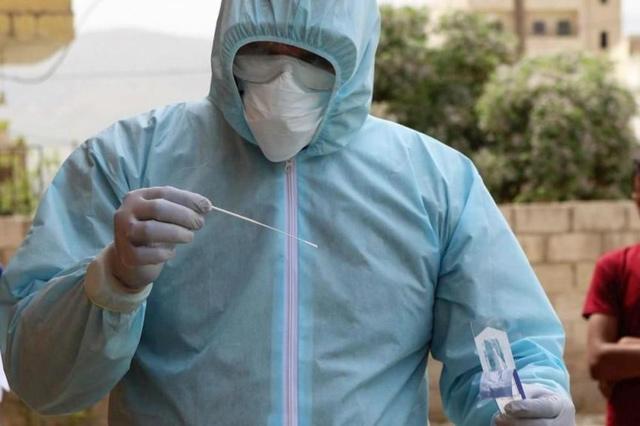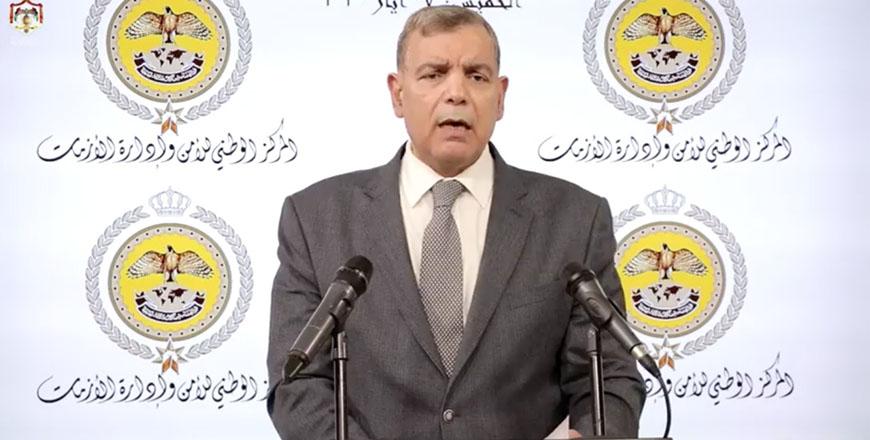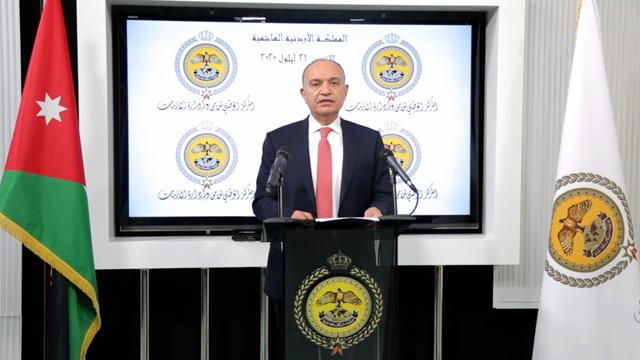You are here
6 virus-related deaths, 734 COVID cases recorded Monday
By JT - Sep 29,2020 - Last updated at Sep 29,2020

A total of 16,453 random virus tests were carried out on Monday nationwide, increasing the total number of tests administered since the outbreak of the pandemic to 1,187,350, according to the health minister (Petra photo)
AMMAN — Six coronavirus-related deaths and 734 new COVID-19 cases, including 721 local infections, were recorded in the Kingdom on Monday, increasing the caseload to 9,226, the government announced.
The new fatalities increase the death toll since the outbreak of the pandemic in the Kingdom to 51, according to Health Minister Saad Jaber.
The local cases comprised 593 in Amman, 10 in Karak, 22 in Balqa, 52 in Zarqa, 12 in Maan, 16 in Ajloun, three in Madaba, 11 in Mafraq and two in Jerash, Jaber said.
The cases from abroad include 13 Jordanians returning from the US, Egypt, Turkey, Oman, Ukraine and the UAE, Jaber said during a press briefing held at the Prime Ministry.
The minister added that 137 recoveries were registered in the Kingdom over the past 24 hours at Prince Hamzah Hospital, quarantine areas and accredited private hospitals.
Epidemiological investigation teams have also carried out 16,453 random tests nationwide on Monday, increasing the total number of tests administered since the outbreak of the pandemic to 1,187,350, according to Jaber.
He added that more laboratories will be established in Irbid, Zarqa, Aqaba, Ghour Al Safi and at Al Bashir Hospital, while the ministry will float a tender to open a laboratory in Maan to increase the number of tests and reduce the time required to receive results.
Also speaking at the press briefing, Minister of State for Media Affairs Amjad Adaileh said that the crisis cell has decided to move forward in implementing home quarantine if the number of cases continues to increase.
Adaileh pointed out that home quarantine will not be applied to all people testing positive for COVID-19, noting that institutional quarantine will be adopted for the elderly with serious health conditions, people who need special care and those who do not have proper environment for quarantine inside their homes.
The minister also added that Prime Minister Omar Razzaz had directed the government entities to adopt certain procedures to reopen closed sectors, prioritising mosques, churches, restaurants and coffee shops.
The plan, he said, will include stations for epidemiological investigation in all governorates, which can be visited by anyone with virus symptoms, and allocating a call centre to inform visitors with the results of their tests, in addition to mobile epidemiological teams and other teams to follow up on the condition of people in home quarantine.
The minister said that the plan will employ an application to trace violators of home quarantine and enforce penalties stipulated in the Defence Order No. 8 with imprisonment term up to three years and fines of up to JD3,000 or both.
He also referred to the possibility of reopening schools depending on the epidemiological situation during this week.
Meanwhile, Spokesperson of the National Epidemiological Committee Nazir Obaidat said that the concept of “herd immunity” will not be followed in Jordan, where “the only moral option” in the Kingdom will be fortifying the community through providing an effective vaccine.
Obaidat noted that the increase in the number of infection is expected due to the nature of the virus that is characterised by its ability “to spread rapidly”, especially since the Kingdom has reached the community transmission phase.
The spokesperson reiterated that to combat this phase, focus should be on enhancing detection abilities through reaching suspected cases and diagnosing them as fast as possible by reaching at least 80 per cent of contacts within 24 hours and isolating patients through a special system.
Related Articles
AMMAN — The Kingdom on Thursday registered 11 coronavirus cases, increasing the tally to 484 since the outbreak of the crisis in Jordan, acc
AMMAN — A total of 239 COVID-19 cases, including 231 local infections, were registered in the Kingdom on Sunday, increasing the caseload in
AMMAN — Two COVID-19 deaths and 266 virus cases including 264 local infections, were registered in the Kingdom on Monday, according to Healt

















